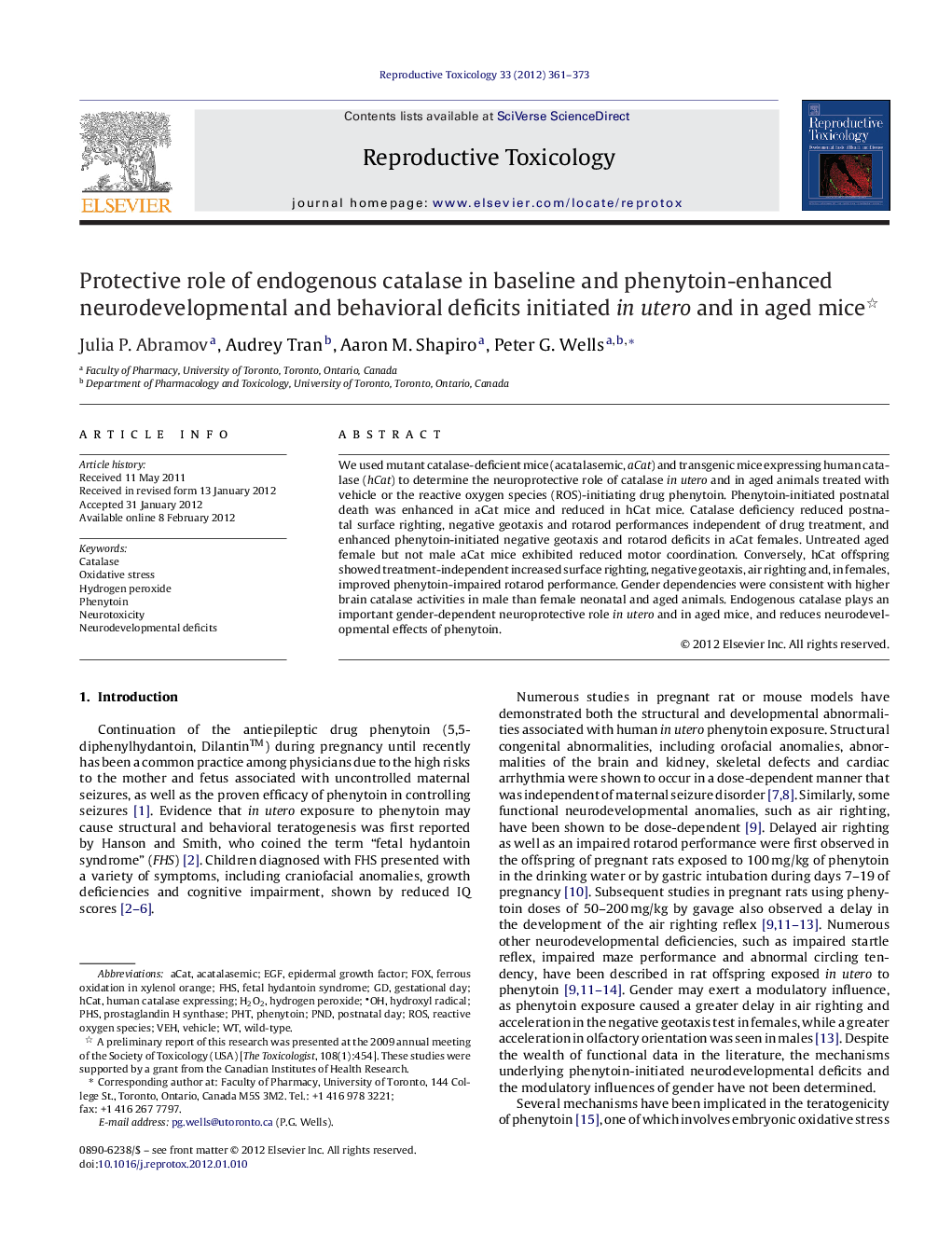| Article ID | Journal | Published Year | Pages | File Type |
|---|---|---|---|---|
| 2594175 | Reproductive Toxicology | 2012 | 13 Pages |
We used mutant catalase-deficient mice (acatalasemic, aCat) and transgenic mice expressing human catalase (hCat) to determine the neuroprotective role of catalase in utero and in aged animals treated with vehicle or the reactive oxygen species (ROS)-initiating drug phenytoin. Phenytoin-initiated postnatal death was enhanced in aCat mice and reduced in hCat mice. Catalase deficiency reduced postnatal surface righting, negative geotaxis and rotarod performances independent of drug treatment, and enhanced phenytoin-initiated negative geotaxis and rotarod deficits in aCat females. Untreated aged female but not male aCat mice exhibited reduced motor coordination. Conversely, hCat offspring showed treatment-independent increased surface righting, negative geotaxis, air righting and, in females, improved phenytoin-impaired rotarod performance. Gender dependencies were consistent with higher brain catalase activities in male than female neonatal and aged animals. Endogenous catalase plays an important gender-dependent neuroprotective role in utero and in aged mice, and reduces neurodevelopmental effects of phenytoin.
Graphical abstractFigure optionsDownload full-size imageDownload as PowerPoint slideHighlights► Reactive oxygen species (ROS) may damage the fetal and aging adult brain. ► Catalase detoxifies hydrogen peroxide formed endogenously or enhanced by phenytoin. ► Fetal and aged female catalase-deficient mice showed enhanced behavorial deficits. ► Catalase-overexpressing mice were protected. ► Reduced deficits in males were consistent with higher brain catalase activity.
